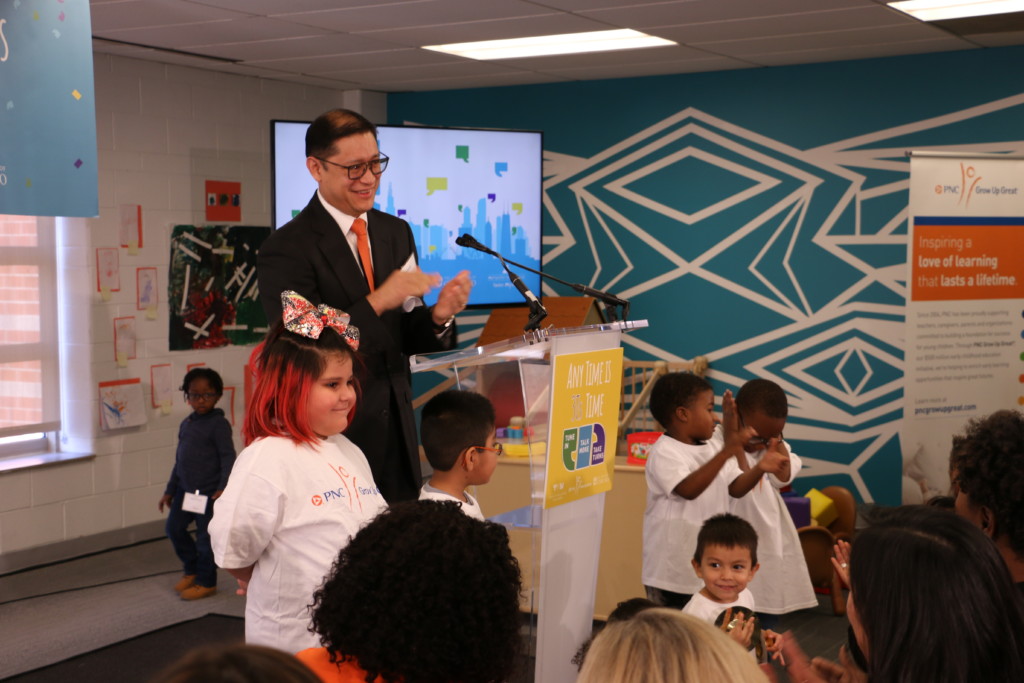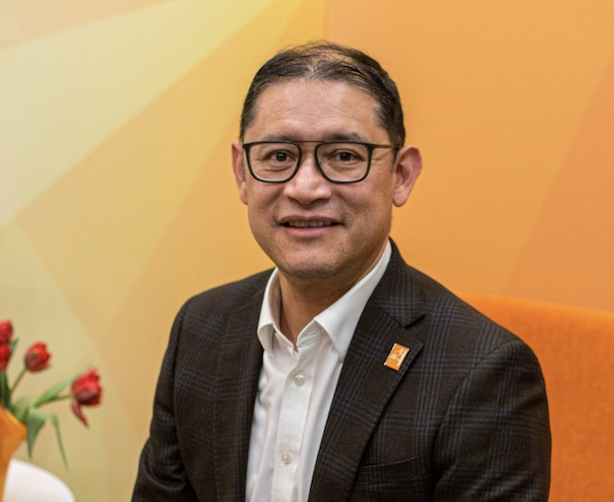Effectively operating in the nonprofit sector — specifically, working hand-in-hand with some of our most vulnerable community members — requires the ability to meet people where they are at, and an eagerness to offer assistance as opposed to passing judgment. This mentality has guided Ric Estrada, CEO of Metropolitan Family Services (MFS), who has served the people of Chicagoland and beyond in this position since 2011, and has worked in human service leadership roles for over three decades.
During his tenure at MFS — or “our tenure, because many people have been with me for the entire time” — Estrada has seen the organization nearly triple in size and outreach. That success is undoubtedly linked to his commitment to the mission, born out of his deep understanding of how need takes shape in our everyday lives and what we must collectively do to eradicate it. In many cases, that means focusing support on critical areas, as opposed to offering general assistance across the board.
“Pulling ourselves up by the bootstraps, it’s in many ways a misnomer. Because some of the people that we are offering our services to, what if they don’t have boots? And I think that’s the reality of some of the folks that we serve. They ended up in a situation where there are no straps to pull.”
Estrada’s support for the city does not end with MFS, however, as he also serves on the Board of Directors for a number of Chicagoland organizations, including ComEd, Metra, Navy Pier, the Grand Victoria Foundation and A Better Chicago. Additionally, he was named one of Better’s Most Powerful Philanthropists and Nonprofit Leaders in 2022 and a 2020 Change Maker in Chicago.
We sat down with Estrada to discuss what makes his career more than a profession but passion work; how he keeps the fire going decades later; and his hopes for the next generation of leaders.
Better: Throughout your career, what has been your motivator? Similarly, what has been your compass during it all?
Ric Estrada: The compass has been trying to provide resources and support to people who, in many ways, are just like my family — it’s kind of paying it forward. I was able to have lots of support and resources [growing up], primarily through family, but also through organizations in the nonprofit sector and public, along the way. And I think it was ingrained in [my family] very early on that if we receive help, then we need to return it. Also, I have a faith-based background, having attended the seminary for a long time. So that whole idea of helping because it’s the right thing to do is there. Then, my high school had a motto that was essentially, “Ora et Labora” — loosely translated to, faith in action or faith at work. So while we are not a faith-based institution here at MFS, those were the current, early drivers [for me].
Since that is, at a foundational level, an important element for you — how do you spark that passion with the other people you work with?
Part of it is they are self-motivated, I mean, I’m so lucky. I’m so lucky to work with a group of people that feel similarly to me. Maybe they came at it from slightly different motivations, slightly different life histories — in every way — but we are bonded together with some common values of making sure that we leave this town, this state, this region better than when we started. But certainly we are deeply committed to the people we serve. We believe we owe not only the respect that every human deserves, but also best efforts. And in my colleagues, I have found that they feel exactly the same way — by and large people feel the same way.
Previously you paneled a discussion along with Make It Better Media and Ulta Beauty, during which you touched on the concept of Diversity, Equity and Inclusion (DEI) initiatives. When you look at larger organizations, like MFS, how do you hope those measures might be implemented in the future?
Regarding DEI, I think about it in at least two different ways. One of them is that it must be woven into our DNA at MFS, and I believe it is. At the same time, we have to constantly be vigilant that we’re doing the right things because our country has a long history of inequity. So while it is deeply woven into our DNA, what we do has to persist beyond me, beyond other leaders that are here, whoever comes next — it has to persist. … For us, it means at every level: hiring, procurement, values, service delivery, investments — at every level we have to make certain that we keep diversity, equity and inclusion top of mind, top of our actions because again, our actions will always speak louder than our words.

On the topic of the next generation, do you have any advice for the people who will move into these spaces, doing this type of work?
One of the things that we talked about in the [panel discussion] is the importance of mentorship, and I’ve reflected on that conversation since then. I’ve been blessed by having so many mentors from every walk of life, teachers, parents, ministers, college professors, coaches. And all together it’s a giant mentor academy that I went through in addition to formal schooling. But if I had to say which one was more important, I’d say the mentors.
Now, my thinking is changing. While I’m still getting mentorship from some people whose hair is even more gray than mine, my mentorship now is coming from young people. Because if we’re going to serve the next generation of younger people, I can’t be looking only to people that came before me. I always like to say, “I don’t give advice, I offer perspective.” So now, I’m taking the perspective of young people — the young people on our team, young people in other organizations, young people in my family. And while I don’t always understand and sometimes don’t even like what they have to say, I have to respect that perspective and incorporate it into my value system. …
Also, we need to be able to understand deeply — not just academically or theoretically — deeply understand that some people were not given the same kind of opportunity that we were and then we have to make things equitable for them.
So as we give advice to the generation that comes right behind us and that’s pushing us already … [I say] always act with kindness and try to understand people’s situation deeply. It’s not enough to say, “Walk in another’s shoes.” Understand the reality. If you invest the time, then you will know the types of investments that are needed. If you don’t invest the time, then you’re going to provide general services that may not meet the needs of the people you serve. … And does it mean sometimes offering them more than others? And the answer to us is, “Yes,” there are some people we have to do more for.
For more on Estrada’s approach to leadership and corporate partnership, watch Make It Better Media’s virtual discussion, paneled by Estrada and Kecia Steelman, COO of Ulta Beauty and read Better’s article summarizing the conversation with key highlights from the event.
Watch the full discussion below:
More from Better:
- How To Help: These Organizations Aiding Domestic Violence Survivors Need Your Support
- Ignatian Spirituality Project: Help Bring Healing and Recovery to Those Most in Need – Your Gift Will Be Matched and Change a Life
- Where to Donate Unwanted or Unused Beauty Products to Women in Need

Margaret Smith is a Chicago-based writer and editor with a passion for socio-political storytelling about their community. They are a graduate of Columbia College Chicago.

